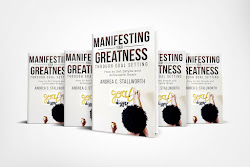You don’t need a life overhaul to feel
good—you need rhythm. The kind you can find in ordinary hours, where one clear
habit flows into the next. Most people overestimate what it takes to feel well
and underestimate what happens when they stop defaulting to chaos. You can
change everything by making fewer, more meaningful decisions. Not louder ones.
Not bigger ones. Just more rhythmically human ones. If you’re looking to feel
better day to day, don’t search for motivation—build something it can land on.
Start with one clear win
You can’t fix mornings with apps you
never open. What you can do is carve out a single moment—coffee on the porch, a
walk around the block, a phone-free breakfast—that marks the day as yours before anything else claims it.
Behavioral researchers argue that wellness doesn’t come from massive
reinventions but from how you handle the first thirty minutes of your day. That
means ditching “ambitious” routines and instead leaning into simple, sustainable routines that
actually stick because they don’t punish you into compliance. It’s about flow,
not force. And nothing flows from burnout.
Reset faster when things go
sideways
Even a good day can turn chaotic. And
it’s in those fractured midday moments that many people lose their
footing—spiraling into frustration, distraction, or depletion. Instead of
pretending you're fine or waiting for the day to end, try this: stop, sit, and
breathe with intention using what experts call the 5‑5‑5‑3 step reset method. It’s not spiritual
fluff; it’s a rhythm disruption tool. You inhale for five counts, exhale for
five, do this five times, then name three things you can feel or see. It gives
your nervous system a pattern to follow—because chaos can't hold its grip on a
brain that finds rhythm again.
Build from the tiniest possible
wins
The truth about consistency is that it’s
rarely dramatic. You don’t need 75-day sprints or public declarations—what you
need is one small move repeated without fanfare. Research continues to show
that tiny wins become lasting routines when they’re
linked to existing behaviors and don’t require motivational miracles. Stack one
next to your coffee. Put another just after brushing your teeth. That’s not
trivial—it’s architecture. Because you’re not fighting your brain; you’re
recruiting it.
Invest in clarity, not just
effort
A lot of effort is wasted when your path
is foggy. For people exploring a career in healthcare or patient-centered
fields, clarity often comes from knowing your options and how they map to real
goals—not just aspirational ones. If you’re considering a degree shift or
reentering the education space, get more details on how programs are
structured, what flexibility looks like, and what credentialing unlocks what
role. More choices don’t help if you’re too fogged up to move. Clear paths
create confident walkers.
Choose presence before
performance
You can’t perform well in a day you’re
not even in. That’s why many health professionals recommend grounding
rituals—not to add “one more thing” to your list, but to remove the noise that
keeps your nervous system scattered. Whether it’s journaling, stillness,
breathwork, or even washing your face slowly, try to start your day with mindful presence. The win
isn’t the act—it’s the reentry into the moment. And presence, unlike
perfection, is renewable.
Play a longer game with your
energy
Quick fixes burn bright and disappear.
It’s the boring stuff—logging your sleep, moving daily, drinking enough
water—that doesn’t wow anyone but changes everything. The problem? Most people
ditch the work when the payoff isn’t immediate. But momentum isn’t magic—it’s
math. And prioritize consistency over instant payoffs;
doing so frees you from the trap of giving up just before it starts working.
What you repeat, you become. So be careful who you copy.
Use gratitude like a tool,
not a mood
Gratitude isn't a vibe—it’s a practice.
One of the most neurologically beneficial ones, in fact. Journaling just three
things you’re grateful for daily can rewire perception, reduce negative bias,
and help you feel emotionally steadier over time. Don’t wait until you're
"in the mood" to feel thankful. Write it when you don’t mean it, and
your brain will catch up later. Most people aren’t born optimistic—they’re
built that way. So if you’re trying to shift your daily tone, gratitude journaling shifts mindsets in ways
that compound quietly.
You won’t build well-being by fixing
everything. You’ll build it by noticing what already works and repeating it on
purpose. Big swings are tempting, but they rarely hold. What holds is
rhythm—days that bend, not break; choices that feel like home, not punishment.
Your energy doesn’t need intensity—it needs flow. And your joy doesn’t need
fireworks—it needs space. Feeling good every day isn’t about the days being
good. It’s about how you move through them when they’re not.
Empower your journey with Brown Girl from Boston, where every “Dear Sis” letter is a step towards your
personal evolution and mental wellness!
















No comments:
Post a Comment